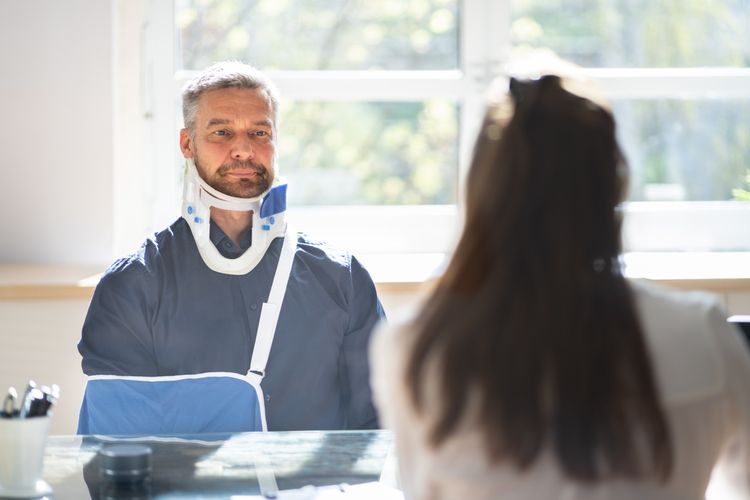The term “wrongful death” evokes deep emotional responses, mainly because it points to a life lost due to someone else’s negligence or malicious intent. In legal terms, wrongful death refers to a lawsuit brought by the surviving family members of a deceased person against the party liable for the person’s death. The state of Georgia, like many other states, has seen its fair share of wrongful death cases. At SHElaw firm®, our wrongful death attorneys have extensively studied and represented countless families who have experienced such tragedies. In this post, we delve into the most common causes of wrongful death in Georgia.
Auto Accidents
In Georgia, motor vehicle accidents top the list of wrongful death causes. This broad category includes accidents involving cars, trucks, motorcycles, bicycles, and pedestrians. Distracted driving, driving under the influence, speeding, and reckless driving are among the primary reasons behind these fatalities.
Medical Malpractice
Even with its advancements, the medical field is not without its flaws. Instances where healthcare professionals fail to uphold their duty of care can lead to tragic outcomes. This may involve surgical errors, misdiagnoses, birth injuries, incorrect medications, or even neglect in nursing homes.
Workplace Accidents
Certain professions come with inherent risks, but it is the responsibility of employers to provide a safe working environment. Construction sites, factories, and agricultural spaces are among the riskier environments. In Georgia, accidents involving heavy machinery, falls, electrocutions, and exposure to toxic substances frequently culminate in wrongful death claims.
Premises Liability
If an individual dies due to hazardous conditions on someone else’s property, the property owner can be held liable. This includes slip and fall accidents, swimming pool incidents, fires, or inadequate security measures leading to criminal attacks.
Product Liability
Manufacturers and sellers have a duty to provide consumers with safe products. When they fail in this duty, the results can be catastrophic. Defective machinery, faulty appliances, contaminated food, and harmful pharmaceuticals can all cause wrongful deaths.
Criminal Activity
Acts of violence, including homicides, assaults, and robberies, sadly account for a considerable number of wrongful deaths. While the perpetrator might face criminal charges, survivors can also seek civil remedies.
Nursing Home Abuse and Neglect
The elderly are particularly vulnerable, and when their care is entrusted to nursing homes, the expectation is for them to receive quality care. Regrettably, this isn’t always the case. Neglect, medication errors, physical abuse, or malnutrition can lead to preventable deaths in such settings.
Recreational Accidents
From boating and fishing to hiking and camping, Georgia offers numerous recreational activities. However, accidents can happen if safety protocols are ignored or if equipment is defective. Drowning, falls, and equipment-related fatalities are common.
Georgia’s Wrongful Death Laws
It’s crucial to understand that Georgia has specific laws governing wrongful death claims. Firstly, according to GA Code § 51-4-1, the state recognizes two types of wrongful death claims:
- The “traditional” wrongful death claim, which seeks compensation for the “full value” of the life of the deceased, covering both tangible (lost wages and benefits) and intangible (companionship, care) aspects.
- The estate claim, which seeks compensation for medical and funeral expenses, as well as the pain and suffering endured by the deceased before passing.
Filing a Claim
In Georgia, the right to file a wrongful death claim is specifically outlined, ensuring that only certain individuals related to the deceased can pursue such a case.
Here’s a breakdown of the hierarchy of individuals who can file a wrongful death claim in the state:
- Spouse: The surviving spouse of the deceased has the primary right to file a wrongful death claim. If the deceased had minor children, the surviving spouse represents their interests in the claim as well. However, it’s essential to note that even if the deceased had several children, the spouse cannot receive less than one-third of the total compensation, regardless of the number of children.
- Children: If there is no surviving spouse, the right to file a wrongful death claim goes to the deceased’s surviving children.
- Parents: If the deceased did not have a surviving spouse or children, their parents can file the wrongful death claim.
- Personal Representative of the Estate: In the absence of a surviving spouse, children, or parents, the personal representative of the deceased’s estate can file the wrongful death claim. Any compensation received from such a claim would be held by the estate and would be distributed according to the deceased’s will or Georgia’s laws of intestate succession if there’s no will.
Keep in mind that while these rules provide a general guide, wrongful death claims can be complex, and individual circumstances might affect the process. Therefore, it’s always recommended to consult with an attorney familiar with Georgia’s wrongful death laws to navigate the specifics of any potential claim.
What is the Statute of Limitations for a Wrongful Death Claim?
Lastly, like all legal actions, there’s a statute of limitations. In Georgia, most wrongful death claims must be filed within two years from the date of death. Exceptions exist, so it’s crucial to consult with an attorney promptly.
Contact the Wrongful Death Lawyers Near You With SHElaw firm® Today!
Losing a loved one is devastating, more so when it’s due to someone else’s negligence. While no amount of compensation can ever replace a loved one, it can alleviate the financial burdens associated with such a loss and serve as a means of seeking justice.
If you or someone you know has experienced such a tragedy, SHElaw firm® in Decatur, Georgia, is here to offer legal guidance, compassion, and representation. Together, we can navigate this challenging journey and fight for justice.









